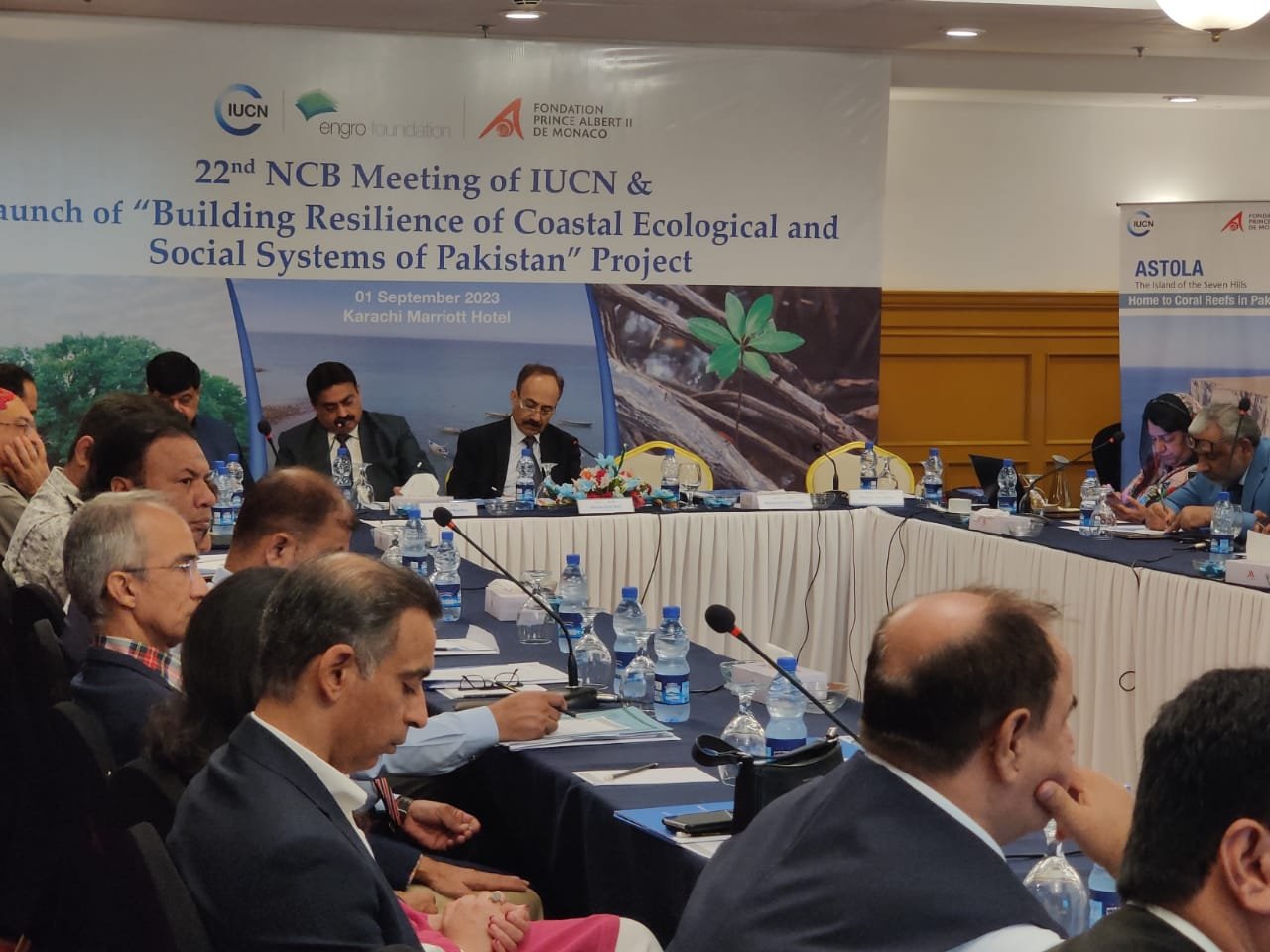The meeting launched the “Building Resilience of Coastal Ecological and Social Systems of Pakistan” project, generously funded by the Prince Albert II of Monaco Foundation.

The 22nd meeting of the National Coordinating Body (NCB) was organized by IUCN Pakistan to address issues related to depleting coastal resources, particularly in light of climate impacts. Stakeholders emphasized the urgent need to designate marine and coastal areas as Protected Areas, with a goal of declaring at least 30% of Pakistan’s coast as Marine Protected Areas (MPAs) under the 30×30 agenda.
The meeting, supported by organizations including Engro Foundation and Monaco Foundation, brought together experts from government departments, coastal agencies, the Pakistan Navy, civil society organizations, and academia. Mr. Mahmood Akhtar Cheema, Country Representative of IUCN, stressed the importance of increasing coastal protection, as currently, less than 1% of Pakistan’s coast enjoys protection.
To address this pressing need, a dedicated sub-committee was established through the NCB platform to identify coastal and marine areas suitable for MPA designation, including Ras Malan, off Pasni, Kalamat Hor, Charna Island, Miani Hor, and Jewani.
Ghulam Qadir Shah, Inspector General of Forests and Secretary of NCB, praised NCB’s collective achievements in coastal resources preservation and highlighted its continuous activity even after the conclusion of the IUCN-MFF programme. The 22nd meeting marked a significant step by officially reviving the subcommittee responsible for MPA designation.
The meeting also launched the “Building Resilience of Coastal Ecological and Social Systems of Pakistan” project, generously funded by the Prince Albert II of Monaco Foundation.
This project will focus on establishing and strengthening MPAs, with an emphasis on developing a management plan for the existing Astola Island MPA. It aims to rehabilitate degraded coastal ecosystems, enhance capacity building, and diversify livelihoods of local communities.
Key participants shared their contributions to coastal conservation and mangrove restoration. Mr. Riaz Wagan of the Sindh Forest Department highlighted the increase in mangrove cover to approximately 160,000 hectares and emphasized the carbon offsetting potential of mangroves in the blue carbon market.
Captain Badshah of the Pakistan Navy discussed their contributions to marine protection, including water treatment, desalination, and mangrove restoration projects.
Mr. Ghullam Muhammad, Chief Conservator of Forests at Balochistan Forest and Wildlife Department, shared coastal conservation initiatives and successful mangrove restoration projects. He also highlighted the eco-tourism potential of turtle conservation at Naran Beach.
Mahmood Akhtar Cheema, Country Representative of IUCN Pakistan, emphasized the importance of a collaborative approach to coastal governance and the active involvement of diverse stakeholders in safeguarding and conserving marine ecosystems. He called for the establishment of a dedicated consortium focused on the restoration of marine and coastal ecosystems.